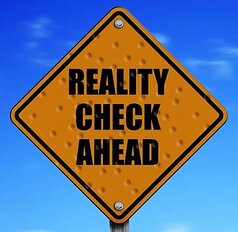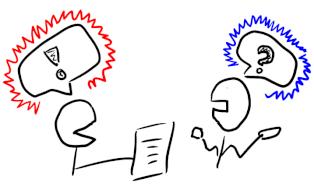 We see a lot of discussion on social media about which is best – traditional publishing (which we will abbreviate as TP) and self-publishing (abbreviated as SP). Within self-publishing we include small publishers such as ourselves, because we use most of the same channels for distribution and marketing as SP authors. We also see a lot of newbie authors asking whether they should go TP or SP before they have even written their book. We’ll circle back to that one later in the blog. The problem is that neither one nor the other is better in terms of choice. It may come as a surprise to budding authors, but you don’t get to make the choice. It may be your ambition to become a TP author, but agents and TP companies actually make the decision. Which means it’s their choice, not yours. All you can do is choose to try to become TP or choose not to bother but to go the SP route straight away.  Our advice would be always to try TP first. The reasons are quite obvious, but we’ll lay them out for you: 1. Access to wider distribution channels, especially major high street retailers. 2. Access to wider markets, such as overseas territories. 3. Professional support, especially editing and proofreading, but also cover design, blurb writing, translators etc. 4. Large marketing budget. 5. Marketing professionals selling your book for you. 6. Reputation and credibility (SP authors are often not regarded as “real” authors). To turn your back on all that would be foolish, so it is worth giving TP your best shot. But let’s do a reality check.  In the UK there are probably in excess of 50,000 working authors who haven’t got a TP contract already. That is a conservative estimate. The actual figures could be much higher because many aspiring authors don’t announce what they are doing. In the USA that figure is probably ten times as high. In the UK there are 9 big name publishing companies (by value of sales*) with an alliance of smaller publishers taking up the number 10 slot. In the American top 10 some of the same names also appear, along with some purely domestic publishers.  Each of those top 10 UK publishers will sign perhaps 100 new authors a year, 1,000 in total. So, that gives a 49 to 1 chance of any of those 50,000 authors getting a publishing contract. I wouldn’t bet on a horse at those odds and, remember, that’s a conservative estimate. There are a number of smaller publishers who deal in niche genres or markets, but they take on far fewer new authors each year, so they don’t really feature in our calculations. So, in the UK, for every 50 authors working today only 1 is likely to get a TP contract. That doesn’t mean you shouldn’t try. It just means you have to prepare yourself for rejection. And even if you do get a TP contract, you will probably receive a lot of rejections along the way so, again, you have to be prepared for them.  An author who finds an agent or publisher with their very first query us as rare as a unicorn. Querying a book is brutal. We know, because everyone employed by our company has tried it at some time. That leaves 49 authors out of 50 to go the SP route or not bother publishing at all. I’ve already listed what you get with a TP contract, so if you go SP you have to provide all those things for yourself and that gives you two more choices. 1. Pay other people to do those things for you, or 2. Learn how to do them for yourself. We made a conscious decision not to pay people to do things we can do for ourselves. If we don’t know how to do something, we will learn how to do it. It is always going to be cheaper in the long term to learn something, because you only have to pay once. If you pay someone else, you have to pay every time you want to do it. If you plan on writing a lot of books, then the costs will mount up and every penny spent means a penny that has to be earned back in sales. At the end of this blog we’ll direct you to a resource that provides free training in some essential skills, such as writing, proofreading, editing and marketing.  Time for another reality check. If you think that writing a book is hard, then you are going to be shocked at how hard it is to market the finished work. We have posted a lot of blogs on book marketing over the years and we are still seeing the same issues being discussed on social media. This means one of two thing. Either people haven’t read our blogs on the subject (or anyone else's blogs about it), or it means newbie authors don’t realise that SP also means SM (self-marketing). It doesn’t matter which publishing website you use (KDP is one but there are several others), after you have clicked on the “publish” button, the real work is only just starting.  Nobody is going to stumble on your book by accident. Once your family and friends have bought a copy of your book, sales will dry up if you aren’t doing any marketing. If you have chosen the right keywords when you published the book, it will turn up in searches, but it won’t be on the first page. It may not even make it as high as the 10th page. Books that turn up on the 1st page of search results get bought, which is why paid advertising is used: it gets your book onto the first page.  Some books that turn up on the 2nd page of results may get bought. Books that turn up on the 3rd page or more rarely sell any copies. So, you have to find the ways of getting your book in front of readers and that is what marketing is all about. And if the SP author doesn’t do the marketing, nobody else is going to do it for them unless they are paid to do it. Which is why we always recommend going the TP route first, because if you don’t try, you can never succeed. Now, I said we’d circle back to wannabe authors fretting over the best way to publish their books before they’ve even written the book.  It’s very simple. If you haven’t written the book, you haven’t got anything to publish, so there is no point in fretting about whether to try TP or go straight to SP. At the very best you are wasting time that could be spent writing and, at the very worst, worrying about that sort of thing could cause writer’s block and you’ll never get your story written anyway. The time to worry about getting your book published is when you actually have a book. Not a first draft. Not a second draft. But a book that is the very best version of itself and has been tested on beta readers and then improved again based on their feedback.  Once you have that, you can start to worry about going TP or SP and, if you are going TP, how to go about finding an agent, because very few TP companies accept direct submissions and the ones that do aren’t in the top 10. If your beta readers are telling you that the book isn’t that great, then trying to go either route probably isn’t worth your while. Sadly, not everyone who wants to be an author has to the talent to become one. But that doesn’t apply to you, of course. And, finally, just to clear something up. If you have written a book you are a real author. Being an author doesn’t depend on how your book is published. There is a growing list of SP authors who make 7 digit incomes from their books, which some TP authors (aka “real” authors) will never make. As an SP author there is nothing stopping you from joining that list, except for yourself. For access to free training in a range of publishing skills, try FutureLearn * The largest TP company in the UK top 10 is Penguin Random House (£409 million), the smallest is John Wiley and Sons (£28 million). If you have enjoyed this blog, or found it informative, then make sure you don’t miss future editions. Just click on the button below to sign up for our newsletter. We’ll even send you a free ebook for doing so.
0 Comments
Leave a Reply. |
AuthorThis blog is compiled and curated by the Selfishgenie publishing team. Archives
June 2025
|
 RSS Feed
RSS Feed